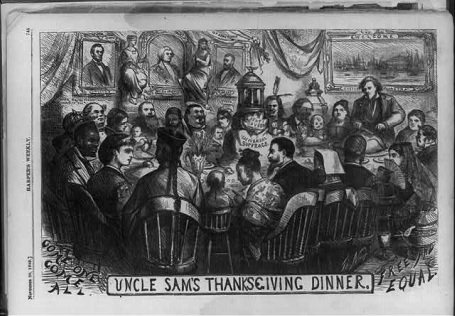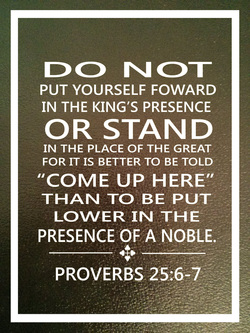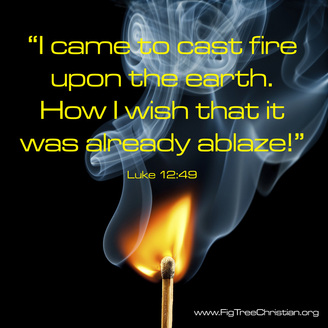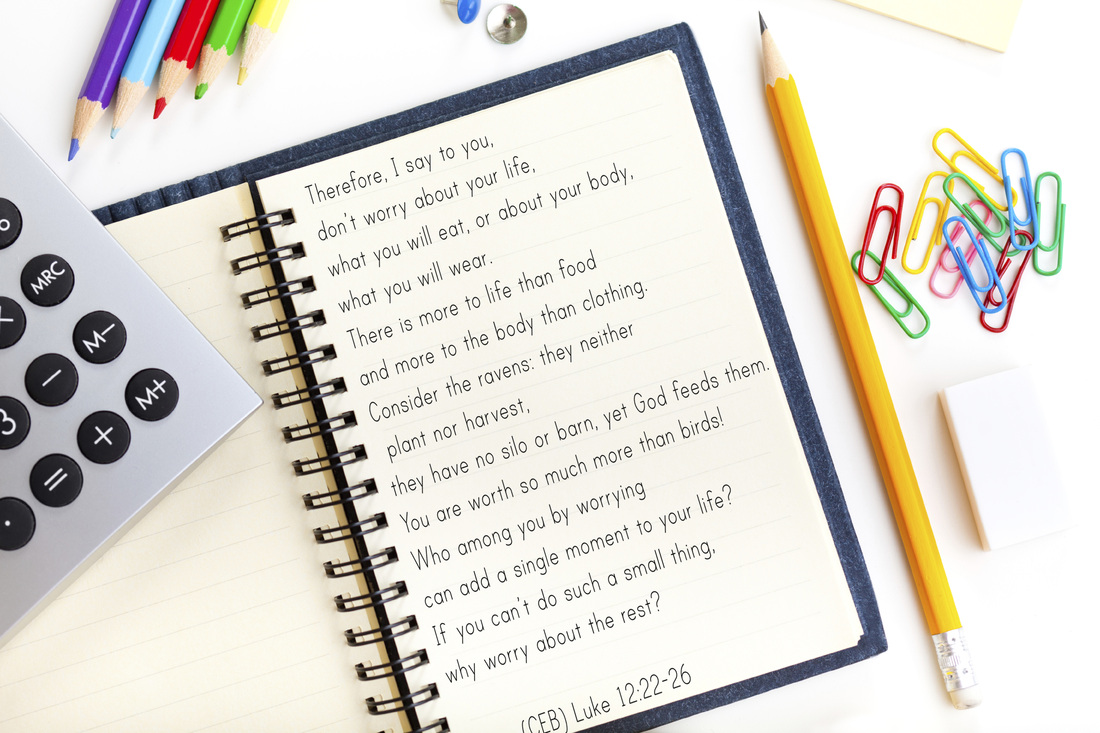Luke 14:1,7-14 CEB  I love a good meal. Meals with families. Meals with friends. A quiet meal by myself with a good book. Meals sustain us and define us. Meals are important, partly because they give us the much needed energy to get through the day, but also because of what we learn from them. Meals are moments of sharing. Having a BBQ when a high schooler graduates, a reception at a wedding, the communion table. These are all celebrations during meals. They shape who we are as a community and as an individual. Meals are so important, cultures designate rules to regulate how and when you should eat. In England you might take part in tea time. Depending on the time of day it could be a low tea, a light tea, or a full tea. The most common being a low tea which is usually taken between 3-5 in the afternoon and eaten in a drawing room paired with scones and sitting on big couches. In Germany it is offensive to place your hands under the table while eating. Also, when you complete your meal, instead of putting your napkin on the table, it is customary to criss cross your knife and fork over your plate. (At least this is according to my German Professor who was German.) In the Middle East, during the time of Jesus, the Jewish custom was heavily influenced by the Roman custom. Invitations to parties were sent out twice, first to tell you there was a party and the second to remind you to go to it. A Triclinia, for those who could afford it, were very ornate square rooms with a door on one side and a couch on each of the other three walls. The couch facing the door was the place of honor. It was where the host would sit with the most honored guests on either side of him. The closer you sat to the host the more important you were.  In our scripture today, apparently some of the guests were rushing to get to those prime spots. Jesus took this rush to share a teaching moment. As Luke writes, he's telling a parable, but in actuality the parable is extremely close to a text from the book of Proverbs. Proverbs 25:6-7 “Do not put yourself forward in the king's presence or stand in the place of the great; for it is better to be told, “Come up here,” than to be put lower in the presence of a noble.” Sounds very similar, doesn't it? Jesus is doing some very particular things by using the Proverb as the base for his parable. First, the Sadducees and Pharisees sought admiration and attention. Some of you might remember another parable Jesus told about the Pharisee and the tax collector. The Pharisee prayed in a way that drew attention to himself. Meanwhile the tax collector was humble before God. Using both the parable for today and the tax collector parable, Jesus was illustrating how the Pharisees actions should be opposite of what they were doing. In other words, be humble or you will be put in your place. Second, using scripture to make his point was kinda a slap in the face to everyone there. The religious leaders were supposed to be the people who kne the scripture up and down and followed it to the letter. Here is Jesus suggesting they are less than righteous because they are doing something outside scripture. In one breath Jesus has been invited to move up the social ladder by attending this very posh meal. In another breath Jesus doesn't fear the truth and doesn't need the status to do what is right. I would bet the silence that filled the room after he spoke was deafening. At the very least, everything was awkward after Jesus spoke. At most, it was hostile and Jesus could have been kicked out of the party. Finally, and most importantly, he is using the Proverb to segway to his real point. Point blank he looks at the leader, the host, and calls him out: “You are only having parties to get invited to someone else's party later. You are only communing with your inner circle and that is not what God has called you to do.” By suggesting he should invite the poor, lame, and blind he is saying something extremely bold yet very simple: “DO YOUR JOB!” The priests were supposed to bring the community closer to God not cut them off. The way the Pharisee's had parties and sent invitations was insight into how they treated their community. They were the same leaders who allowed the widow to put her last mite into the communion pot instead of taking care of her. They lost track of their purpose. Who and how we share meals are insightful to who we truly are. We might be inviting Jesus to our meals, but what would he say about the feasts we are engaging in? Are we open enough to hear what he is going to tell us? Maybe I can presume: Don't work for or with a ministry because they can give you the great childcare, flashy lights, or nice paycheck. Don't do God's work for personal gain. Instead, do what you do because it is what you are called to and what is right. This scripture is the positive example to Matt 5:38-39, “You have heard that it was said, An eye for an eye and a tooth for a tooth. But I say to you that you must not oppose those who want to hurt you. If people slap you on your right cheek, you must turn the left cheek to them as well." Our scripture for today would be like saying, "You have heard it said, Do good to get good things. But I say to you that you must help those who cannot help you in return. If you act in a loving way, you must not expect that action returned to you." Real, honest, and good change happens when we are willing to expand our hearts instead of our influence. Like what you are reading? Join the conversation on Reddit! http://www.reddit.com/r/FigTreeChristian/ . There you can also share blogs and articles that extend the discussion, or just add to the discussion on this meditation. Either way, look forward to seeing you there!
Also, if you are in the Atlanta area consider coming to the planning meeting this Sunday. For more information check out Upcoming Events! Luke 13:10-17 CEB Did I just start a meditation with a preview from an episode from Star Trek: The Next Generation (TNG)? Yes, Yes I did. And, just because I am good person and love you all, I will include this clip from the Big Bang Theory featuring the Wesley CRUSHers: (BTW-You don't need this video for the meditation, but why wouldn't you want to watch Sheldon say "Wheaton" menacingly under his breath?) OK, that was fun. Now moving on. I am sure by now you are wondering what the possible connection is between a 26 year old episode and our revered and holy scripture. Ah, well, let me tell you.
In the episode Jean Luc Picard sends a team down to a planet that is a proverbial Eden. It is perfect in every way. The people are considered beautiful by the crews standard, there is no division, no poverty, and no sickness. No one, anywhere on the planet, ever broke any rules. Wesley Crusher, son to the doctor and a teenager, decides to spend some time with the kids on the planet playing some games. While playing a game of frisbee Wesley goes long and accidentally breaks a small greenhouse. In breaking the glass, Wesley also breaks a rule. It is then the crew learns every punishment, for every broken rule, was death. Wesley was going to be executed. This episode is opposite from our American culture in two clear ways. We break laws/rules all the time, and breaking those rules results in scaleable punishment if caught. The Captain would spend the remainder of the episode trying to defend Wesley by discussing how ludicrous the punishment was. (I don't know, perhaps messing with their ecosystem and ruining their Eden was the real crime, but I digress.) Jesus, in our scripture also talks about law being ludicrous, but in a different way. The law in question is working on the Sabbath. God created the Heavens and Earth in six day and on the seventh God rested. In honor and worship of God we are to rest on the seventh day as well. We should not work. Unless... Later in the scripture, the Jewish leaders would concede that if an animal were to fall in a well on the Sabbath, they would retrieve it. In this scripture Jesus points out how one works simply to give their animals water on the Sabbath. If one is willing to break the rules to help an animal, why wouldn't one break the rules to help an afflicted woman? The point: Sometimes it's about doing what is right instead of following the rules. Rules are well and good, but rules can keep us from relating with one another. When Jesus said, "I have not come to abolish the law, but redeem it," I believe he was talking about redeeming the system to work for the people again, not against it. No one with Jesus could see the afflicted woman over and beyond the rule holding people back from helping her. There is a reason those rules existed to begin with, and that reason is what we should be living, not the rules themselves. So beam me up, LaForge, I think I'm done. Luke 12:49-56 CEB  I love cast iron skillets. My love began back when I was a camp staffer at Christmount. We were leading a mountain camp and decided to cook breakfast over the fire one morning, and I wanted to cook it on a cast iron skillet. Not having any idea what I was getting into, I went to downtown Black Mountain and purchased one. Did I stress that I had no idea what I was doing? Cast iron has to be seasoned before it can be used. After it is seasoned it takes on a black hue. My skillet was silver. It was brand-spankin' new. Luckily for me, Jamie Brame, my boss stepped in and helped me out. He, almost gleefully, took my skillet and seasoned it for me. Thanks to him our Mountain Camp had breakfast over a fire, and I vowed never to cook something as messy as eggs again during a camping trip. I loved that skillet. No one was allowed to cook or clean it except me. Often, after cleaning it, I would allow it to sit on the stove instead of in the cabinet. All my food tasted better when cooked with the gleaming black glory I called my skillet. Then one day it happened. While I was out, a cleaning lady came and completely sanitized and scrubbed the kitchen from top to bottom. She knew nothing of cast iron and assumed the skillet must be dirty if it was sitting on the stove. She scrubbed it clean and left it wet in the sink. (Seasoning does two things: it creates a non-stick surface, and it keeps the iron from rusting.) I came home and my black skillet was red. The whole thing was rusted. I was devastated. I tried to fix it, but I did not have the talent. It was gone. With as much dignity as I could muster, I gathered up the sad remains of my skillet. Later that night, alone in the backyard, I buried it next to the garage. Now I could never be sure, but I thought that I heard the sound of "Taps" being played. Gently. At least that is how I remember it. The father from a Christmas Story and I can cry together over our losses. While I no longer own that particular skillet, I now own four other cast iron skillets of varying sizes. They were either purchased, inherited, or given to me since that dreadful day I lost my first one. Of the four, I seasoned one myself. I did it recently, and while I did I thought about the process. Seasoning a skillet means cooking the oil onto the surface. It really seems to be a backwards process. It permanently makes the skillet dirty in order to make it usable for life. Anyone who is heavily into sanitizing and cleaning probably wouldn't like to own their own cast iron skillet. A cast iron skillet continues to season for life. So every time you cook, you are cooking more oils onto the skillet. Howard Hughes, stay away. It's not for him.  In the same way I look at the scripture and see the backwards nature of Jesus' words. Jesus doesn't like peace? He wants us all to burn? What?! Is this the same Jesus who said, “Happy are people who make peace, because they will be called God’s children?” (Matt 5:9) Don't get me wrong, but is this the same Savior who rebuked the Disciples for suggesting raining down fire on the Samaritans like Elijah did? Why is he suggesting such an action now? This is not the scripture for the staunch pacifist, who believes division is bad at any cost. The scripture reminds me of seasoning a skillet. It reminds me of a skillet because to gain something worthwhile and special, something odd and backwards needs to be done first: We must speak out and say what is wrong. Today, this has taken the face of traditional and secular ideas going against one another. Mainline and Evangelical voices expressing their distaste for one another's worship style and age brackets sharing how other age brackets are failing to meet their needs. This all comes together and we have a fire beginning to kindle. In my mind, it is the exact kind of fire Jesus wants. It is the type of fire that brings healthy conflict to a head where it can be dealt with.  So here is the problem. We clearly have this fire beginning to kindle, but this fire can go in one of two directions. If it goes the right way it can season the beginnings of a new chapter for Christianity. We will turn this dissonance into a cadence that will bring our songs together. We will create a safe place where all these voices can be heard. In that arena the next question will naturally be, “Now what?” We will start to experiment and try out spiritual ideas to see if something can stitch, or stick us back together. It will lead to a spiritual enlightenment. Or... we refuse to contain our fire and it burns out of control. We disconnect more than we have ever disconnected. The Body of Christ burns up and ceases to exist. Instead of the healthy flame of renewal, we get the wildfire of destruction. So let me ask the question: Now what? Now we try things! Feel like people would connect over coffee? Start a coffee fellowship! Connect over music styles. Attempt to create a show that will help those outside 'church' find connection. And celebrate when others make an attempt, no matter how crazy that attempt is! Discover the next step by simply giving it a shot. What if you fail? Well, most of us will. Failure is always an option. Yet, I have learned through Fig Tree Christian, failure is simply being able to check off what doesn't work. The important piece to all of this is to keep connecting through our disagreements. For God's sake, let the voices be heard. Let your voice be heard. Speak up! Listen! So many have stopped talking because they have been hurt by the other voices online. I, personally, have been deeply hurt through the internet. Some people have said some cruel things to me. Yet, I have celebrated in those pains because communication happened in those moments. I have learned to put down my sword and pick up my doctor's kit. This lesson didn't happen because I was at peace in my life. This lesson happened because I was at odds with the very people God called me to love. While my faith journey has left me 'well seasoned,' I look around me and see our collective faith has been left to rust. It's time to clean this up and fix it the right way. So get out there. Listen to the stories of others, and try stuff out. If someone calls you crazy, who cares? John the Baptist kinda looked like a nut too. If we don't pull this dissonance together, it will all burn up before it has ever begun. The Christian story will only exist as a story we tell our grandkids. "Ah, remember when we gathered together and worshipped God in a church?" Now what? For God's sake, go find out. Like what you are reading? Join the conversation on Reddit! http://www.reddit.com/r/FigTreeChristian/ . There you can also share blogs and articles that extend the discussion, or just add to the discussion on this meditation. Either way, look forward to seeing you there!
On August 4, 2013 I preached at Community Christian Church in Fayetteville, Georgia. I talked about the internet word, "This." In the video I answer the question: "What is 'this' in the the bible?" I begin at 3.20. If you like what you are seeing subscribe to the right of the meditation, or join our subreddit and add to the conversation!
Genesis 15:1-6 CEB Part of me feesl like God is Willy Wonka in this scripture and Abram, or Abraham, is Veruca Salt. It's because this whole piece of scripture becomes a test initiated by God. Either Abram would pass and he would be found to be a 'good egg,' or he would 'want it now' and be a 'bad egg.' In case you are a little fuzzy on my analogy, here is a fun video to remind you: And egg is a great word to use in this text, because an egg, or an heir is what Abram ultimately wants. Yet something is lost in translation. What is happening in scripture is word gymnastics, of sorts, between "heir" and "seed". An heir is one person. A seed, on the other hand, holds the potential to be a group, a collection, a future. Abram is less concerned, at the moment of this scripture, with the potential, or the seed. He uses it to up the ante with God, almost like the future generations were poker chips to be wagered. His main concern is getting an heir to inherit all that stuff he has accumulated over his life. (Not something to take lightly. Keeping things in the family was a big deal. So much so, there would later be a law where females were only allowed to marry within their tribe to make sure the 'stuff' remains familial.) Still, I can hear Veruca walking among the Geese that lay golden chocolate eggs singing, "I want an heir, I want a real heir." God is less concerned with the heir and more concerned with the future. In fact, he bridges the "heir" to get to the "seed". God never compares this unborn heir to anything spectacular. He does compare the seed to something wonderful and beautiful: the stars in the sky. God just needs Abram to be patient and wait. First of all, Abram passes, he is willing to wait and continues to hold the right to be the Father of a great nation. But secondly, there is a bit that stands out, a takeaway for us: In this case Abram's plan, and what Abram wanted, was too small for God's great plan. Small plans can be thrown together overnight. Great plans take time to prepare. God's plans takes time. That is part of the reason we always need to hear, "Don't be afraid." Our immediate needs seem to creep up on us and overshadow our greater needs. God wants to use us, but only if we are able to work on God's schedule and planning, not ours. I know it's difficult. It is difficult to me. Sometimes I think I could be found a "bad egg" and sent down to the trash. Then I realize this conversation was a second chance for Abram to understand. God and Abram had already had this conversation before, only in relation to the dust that surrounded him. It just tells me, God doesn't give up on us, even if we lose patience with God. Below I have included the Peace Pilgrim's Prayer. I am sure everyone has something they have grown impatient with. Just remember, God's plan is bigger than your plan. "Peace. Be still, and know that I am God." Like what you are reading? Join the conversation on Reddit! http://www.reddit.com/r/FigTreeChristian/ . There you can also share blogs and articles that extend the discussion, or just add to the discussion on this meditation. Either way, look forward to seeing you there!
Christian memes are the internet's version of tracts without the negativity. Tracts try to scare people into faith with goury images of Jonah's skin peeling off after being in a whale multiple days, or people burning alive in hell. My high school had a few who would generously drop tracts into my locker. I would laugh at the graphic novel style mini-book. I was not brought to faith through fear and manipulation. I was brought to God through love and caring. Tracts do not scare me, they humor me. Christian memes, unlike their secular counterpart, do not make fun of the subject matter. They take an image or a group of words to express a Christian idea in an attractive way. Their whole goal is to get you to read and click. Christian memes are hooks. It is meant to draw you into something bigger. This is one of the ways the internet fish for people. This might sound cheap to hear the purpose behind those clever little pictures, but it is all a double edged sword. Everyone advertises. Everyone uses graphic design to express an idea or feeling. For the most part, churches do it poorly. Part of the reason they do it poorly is because they know they will be chastised for doing it. Design today is manipulation. McDonalds uses red in their restaurant because it increases hunger and get's you to eat faster. The FedEx logo has a forward moving arrow hidden in the name to help your brain understand it is a shipping company. Also, it was recently pointed out the new Wendy's logo has "mom" hidden in Wendy's collar to suggest their food is like home cooking. Design is everywhere. Advertising is everywhere. We cannot escape it. Even at church. The skin tone of the icons on the church walls and powerpoint presentations are design. The choice between a wooden or brass cross is design. Whether a church has a communion table, what that table looks like and where it is located is all design. All these things and more sends signals to our brain and tells us theological truths. When churches refuse to admit they are designing worship or the space they worship in they allowing bad design to take over. Humans communicate with more than verbal cues. I write all this because this week I am choosing to post three Christian memes in place of a meditation. Part of the reason I make these memes is so you will share them and spread the word. They are by design. This is the internet and we don't have the luxury to ignore how design looks. Everything has to have a reason and a place or it is ignored. If you find one you really like: pin them, share on Facebook, post one or more on Twitter. If you are a minister, feel free to use one on a Sunday morning during your powerpoint. It's appropriate to evangelize when we are sharing the love of God. Like what you are seeing? Considering subscribing up to the right of the meditation.
Have a Christian meme you want to share? Join the conversation on our subreddit, http://www.reddit.com/r/FigTreeChristian/. On the subreddit you can ask questions, give answers, and share blogs and memes. Look forward to seeing you there! |
Categories
All
Archives
October 2023
|







 RSS Feed
RSS Feed